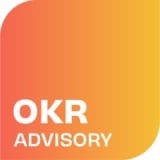This informal CPD article, ‘When to begin your Objectives & Key Results (OKR) journey’, was provided by OKR Advisory, who are a specialist consultancy dedicated to the online and on-site delivery of Objectives and Key Results (OKR) services to a global client base.
The usual scenario
Someone once said that traditionally, Q4 is where strategy happens. A damning comment about the levels of engagement around strategy perhaps, and the ability and appetite of teams to deliver on priorities throughout any given year.
All those best laid plans and ideas from the previous year’s strategy sessions are still sitting there, gathering dust, as business as usual once again takes centre stage and dominates the agenda. The rush is now on to GET SOMETHING STRATEGIC DONE! And so it goes on, year after depressingly familiar year. But how to change?
The options
There appear to be two clear choices:
- either you recognise that the current status quo isn’t working for the organisation, that the strategic cadence and habits are insufficient to drive the desired outcomes, and decide to do nothing, simply repeating the same mistakes over again.
- or you acknowledge that a new method for strategy implementation might produce improved results, and start to explore the options.
Introducing OKR
Enter OKR, the agile framework for implementing strategic priorities, used by many successful organisations worldwide. But is it already too late?
Q4 arrives and you follow the usual steps to find more information on the subject:
- you read one of the many books available on the subject
- or book an introductory discussion with a subject matter expert
Then, you debate its merits a little more internally. And then you decide you want to launch a full OKR implementation in Q1. That’s less than three months away - the stopwatch is definitely now ticking.
In the short amount of time available you need to:
- review and possibly adjust the organisation’s upcoming strategic priorities
- overlay an entirely new framework for delivery
- educate the teams
- develop the actual OKR content
- launch
And that’s before we consider the often-crippling impact of festive season holidays.
Cultural changes take time to bed in - and make no mistake this almost certainly will require a change in culture - and without the opportunity for pilot teams to test the process and iron out the creases the risk of failure is significantly increased. Sounds all too familiar?
And yet… OKR consultants the world over will openly state that most enquiries for new OKR implementation work, and also remediation engagements for poorly performing OKR rollouts, arrive in the lead up to Q4. Desperation often kicks in with clients recognising that another year has passed, and they are in the exact same scenario as the previous year, and the one before that, and so on. Valuable time has passed with no clear progress towards strategic goals.
Timing is everything
There is another way however, so how about we picture this instead? Halfway through the year delivery teams recognise that pursuit of strategic goals is going the same way as in previous years, trampled into submission by fire fighting and business as usual. But instead of waiting to see how Q3 looks before starting the conversations around change and improvement in Q4, the process for OKR implementation or remediation starts right then and there. You “strike while the iron is hot”.
A significantly more measured approach can then be implemented, including:
- appointing a support partner
- providing comprehensive training
- and setting up a pilot to learn valuable lessons in advance of a full rollout
These are all steps that will significantly improve the chances of success. It’s not ‘rocket science’.
In conclusion
It’s critical when introducing a framework such as OKRs that an organisation gives itself the greatest possible chance of success, and that usually equates as time. They are easy to understand, but can be complex to roll out, so it is important to start your OKR journey as soon as it becomes obvious your organisation needs to introduce change, rather than to coincide with arbitrary milestones within the existing strategic cycle. There is no such thing as having too much time.
Supercharging strategy delivery should be a priority, not something that’s put on the back burner until the last possible moment.
We hope this article was helpful. For more information from OKR Advisory, please visit their CPD Member Directory page. Alternatively, you can go to the CPD Industry Hubs for more articles, courses and events relevant to your Continuing Professional Development requirements.













